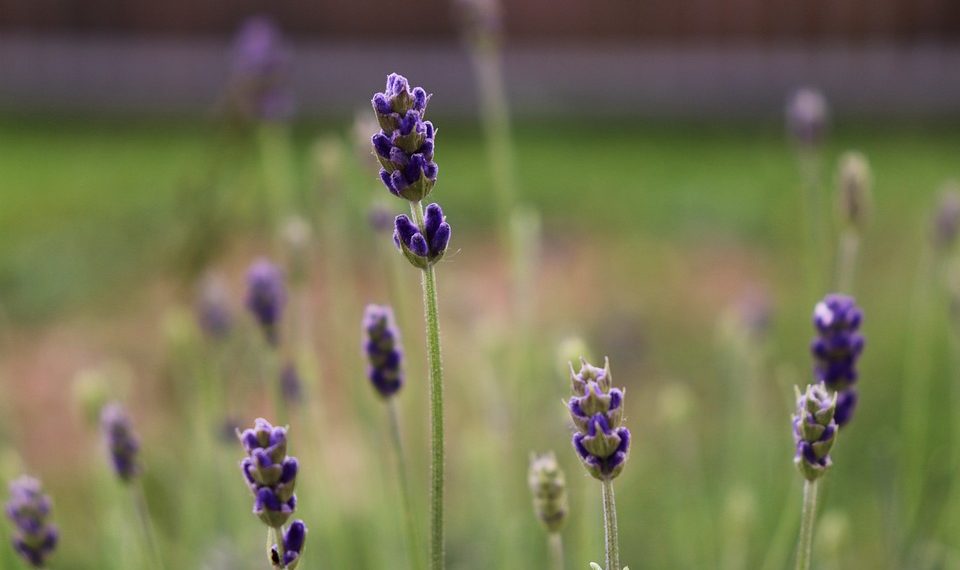Herbal remedies for everyday ailments are not just a trend—they’re a lifeline. Imagine leaning into nature’s pharmacy to soothe your body and elevate your well-being. Harnessing the power of herbs can be transformative, giving you the tools to reclaim your health in a natural way.
These remedies aren’t just about treating symptoms; they’re about nurturing your entire being. You deserve to feel your best, and the right herbs can be your allies. Let’s dive into ten herbal remedies that can make a significant difference in your everyday life.
Contents
- The Power of Herbal Remedies
- 1. Ginger for Nausea and Digestive Issues
- 2. Peppermint for Headaches and Tension
- 3. Chamomile for Sleep and Anxiety
- 4. Turmeric for Inflammation
- 5. Echinacea for Immune Support
- 6. Lavender for Stress Relief
- 7. Garlic for Heart Health
- 8. Holy Basil for Stress and Hormonal Balance
- 9. Aloe Vera for Skin Irritations
- 10. Lemon Balm for Digestive Comfort
- Bottom Line
- FAQs
The Power of Herbal Remedies
Herbs have been used for centuries in various cultures to heal and support the body. They carry potent compounds that can help alleviate common ailments without the side effects often associated with pharmaceuticals. With the rising interest in holistic health, it’s time to explore how you can incorporate these natural solutions into your routine.
1. Ginger for Nausea and Digestive Issues
If you’ve ever felt that queasy, uneasy sensation in your stomach, ginger is your go-to hero. Known for its warming properties, this spice works wonders for nausea, whether it’s from motion sickness, morning sickness, or an upset stomach.
-
How to Use: Brew fresh ginger tea by steeping slices of ginger in hot water. You can also chew on candied ginger or take ginger supplements.
-
Why It Works: Ginger is rich in gingerol, a compound known for its anti-nausea effects. Studies suggest that it can be as effective as some pharmaceutical options without the drowsiness.
2. Peppermint for Headaches and Tension
When stress starts to creep in, peppermint can be your cool relief. Its refreshing scent and cooling sensation can help alleviate tension headaches and sinus pressure.
-
How to Use: Inhale peppermint essential oil, apply diluted peppermint oil to your temples, or sip on peppermint tea.
-
Why It Works: The menthol in peppermint acts as a natural muscle relaxant, easing tension and improving blood circulation.
3. Chamomile for Sleep and Anxiety
Struggling to catch some Z’s? Chamomile may be the soothing embrace you need. This gentle herb is famous for calming the mind and promoting restful sleep.
-
How to Use: Drink chamomile tea before bed or use chamomile essential oil in a diffuser.
-
Why It Works: Chamomile contains apigenin, an antioxidant that binds to receptors in your brain, lowering anxiety and aiding sleep.
4. Turmeric for Inflammation
Got inflammation? Turmeric is a powerhouse. Its active ingredient, curcumin, is celebrated for its anti-inflammatory properties that can help with chronic pain and arthritis.
-
How to Use: Add turmeric to your meals, or mix it into smoothies. Turmeric supplements are also widely available.
-
Why It Works: Curcumin blocks inflammatory pathways in the body, making it a natural alternative to over-the-counter pain relievers.
5. Echinacea for Immune Support
When the sniffles start, reach for echinacea. This herb is well-known for its ability to boost the immune system and help fend off colds.
-
How to Use: Take echinacea supplements at the first sign of illness or drink it as tea.
-
Why It Works: Echinacea stimulates the production of white blood cells, enhancing your body’s ability to fight off infections.
6. Lavender for Stress Relief
Life can get overwhelming, and lavender is here to remind you to breathe. This fragrant herb is not just for your sachets; it’s a powerful stress reliever.
-
How to Use: Use lavender essential oil in a diffuser, add it to your bath, or sip on lavender tea.
-
Why It Works: The soothing aroma of lavender has been shown to reduce anxiety and improve sleep quality.
7. Garlic for Heart Health
Garlic isn’t just a flavor enhancer; it’s a heart protector. This potent herb can help lower blood pressure and cholesterol levels.
-
How to Use: Incorporate fresh garlic into your cooking or take garlic supplements.
-
Why It Works: Allicin, the active compound in garlic, has been linked to improved heart health and reduced inflammation.
8. Holy Basil for Stress and Hormonal Balance
Feeling frazzled? Holy basil, or tulsi, is your adaptogenic ally. It helps your body adapt to stress and can support hormonal balance.
-
How to Use: Drink holy basil tea or take it in supplement form.
-
Why It Works: Holy basil reduces cortisol levels, the stress hormone, promoting a sense of calm and balance.
9. Aloe Vera for Skin Irritations
If your skin is feeling irritated or sunburned, aloe vera is nature’s soothing balm. This succulent plant is packed with vitamins and antioxidants that promote healing.
-
How to Use: Apply fresh aloe vera gel directly to the skin or use aloe-infused creams.
-
Why It Works: Aloe vera has anti-inflammatory properties and can accelerate wound healing, making it perfect for minor burns and skin irritations.
10. Lemon Balm for Digestive Comfort
Lemon balm is more than just a pretty herb; it’s a digestive aid that can help with bloating and discomfort.
-
How to Use: Brew lemon balm tea or take it in tincture form to ease digestive issues.
-
Why It Works: This herb relaxes the digestive tract muscles, promoting better digestion and reducing gas.
Bottom Line
Exploring herbal remedies for everyday ailments can open up a world of healing. Whether you’re seeking relief from headaches, digestive troubles, or anxiety, nature has provided us with these remarkable tools. These herbs are not just remedies; they’re an invitation to take charge of your health and well-being.
So why not give them a try? Your body is waiting for that natural boost, and you deserve to feel your best every day. Remember, always consult with a healthcare provider before starting any new herbal regimen, especially if you’re on medications or have underlying health conditions.
FAQs
1. Are herbal remedies safe?
Most herbal remedies are safe for general use. However, always consult with a healthcare provider, especially if you are pregnant, nursing, or on medication.
2. How long does it take for herbal remedies to work?
The effectiveness can vary widely depending on the herb and the individual. Some may notice relief within hours, while others might take days or weeks.
3. Can I use multiple herbs together?
Yes, many herbs can complement each other. However, ensure that they don’t interact negatively. Consulting with a professional is always a wise choice.
4. Where can I buy these herbs?
You can find these herbs at health food stores, online retailers, or in your local grocery store.
5. Are there any side effects?
While many herbs are safe, some can cause side effects or interact with medications. Always do your research and consult your doctor.
Embrace the power of herbal remedies, and watch how they enrich your life. You’ve got this!
Get Your FREE Natural Health Guide!
Subscribe now and receive our exclusive ebook packed with natural health tips, practical wellness advice, and easy lifestyle changes — delivered straight to your inbox.















